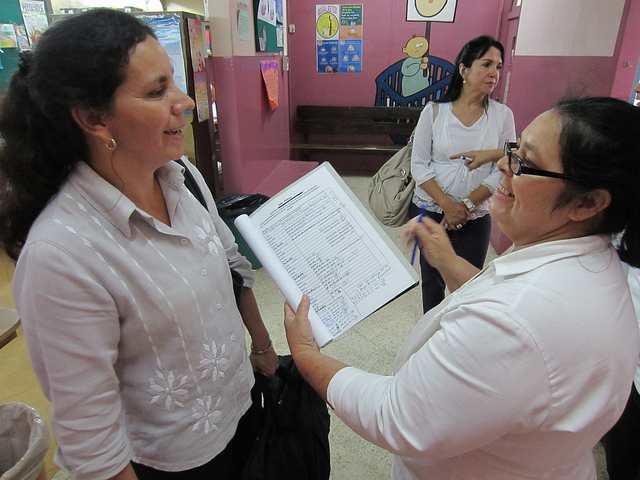Learning
Countries will only achieve their own visions of preventing maternal and child deaths by attaining high-effective coverage for known high-impact interventions, making sure to reach those most in need. Helping key countries reach these goals for coverage/scale, quality and equity was at the core of MCSP’s activities. These were not only implementation goals, but also key areas for learning.
MCSP learning activities were designed to produce specific and actionable results for implementers in their own context. The Program’s action-oriented learning agenda included seven overlapping themes that encompassed our goals as well as key strategies for attaining them:
Themes related to goals
1. Achieving impact at scale through systematic scale-up of high-impact interventions
2. Quality improvement for service provision
3. Equity of service provision, including gender equity
Themes related to implementation strategies
4. Health systems strengthening
5. Community action for health, community-based service provision and information system, and civil society engagement
6. Innovation for both products and processes to improve coverage, quality and/or equity of health services
7. Measurement and data use for management and accountability
The MCSP action-oriented learning agenda focused on assessing approaches under these themes and tailoring them to context. This involved both traditional studies and learning activities during systematic implementation for which information gathering is embedded in project monitoring and reporting systems. MCSP encouraged a mindset of iterative learning and adaptive management throughout the programming cycle. MCSP learning activities fit into implementation research categories throughout the program cycle:
- Predict – set priorities through modeling of impact, costing and other key parameters;
- Explore – engage in exploratory and formative investigations to improve program design;
- Test and influence – assess interventions and strategies to help implementers improve practice; and
- Explain – evaluate how and why interventions and strategies did or did not work.
Across the Program, MCSP helped countries focus on six key implementation strategies — or or “drivers” — for effective country-led scale-up:
- Forming and/or strengthening scale-up leadership and management teams at national and district levels
- Implementing a multi-stakeholder strategic and operational planning process (situation analysis, facilitated workshops, assistance on key content of plans) to produce system-oriented national, sub-national, and district plans aligned with Ministry of Health (MOH) strategy and vision, addressing system barriers and building on system strengths
- Using local & district monitoring dashboards (monthly at the local level and quarterly at the district level) with 3-6 quantitative indicators, including at least 1 outcome, and visual presentations for ease of interpretation
- Strengthening agile management mechanisms — specifically, country teams supporting the use of mentoring and coaching strategies as well as rapid communication mechanisms like WhatsApp
- Supporting learning workshops to guide adaptation with participation of multiple functional scale up units (i.e., districts and not just facilities, because districts are the lowest level of the MOH management hierarchy at which all health systems are functional, and therefore can form sustainable and replicable units)
- Using costing analyses to estimate incremental costs, which facilitate planning and resource mobilization

